Are you wondering if vanilla extract is gluten-free? Look no further!
This article will give you all the information you need to make an informed decision.
Discover the risks of gluten contamination during the manufacturing process, learn how to read labels to determine if the vanilla extract is gluten-free, and find tips for safely using gluten-free vanilla extract.
Hopefully, after reading this, you can say goodbye to uncertainty and enjoy your favorite vanilla flavors worry-free!
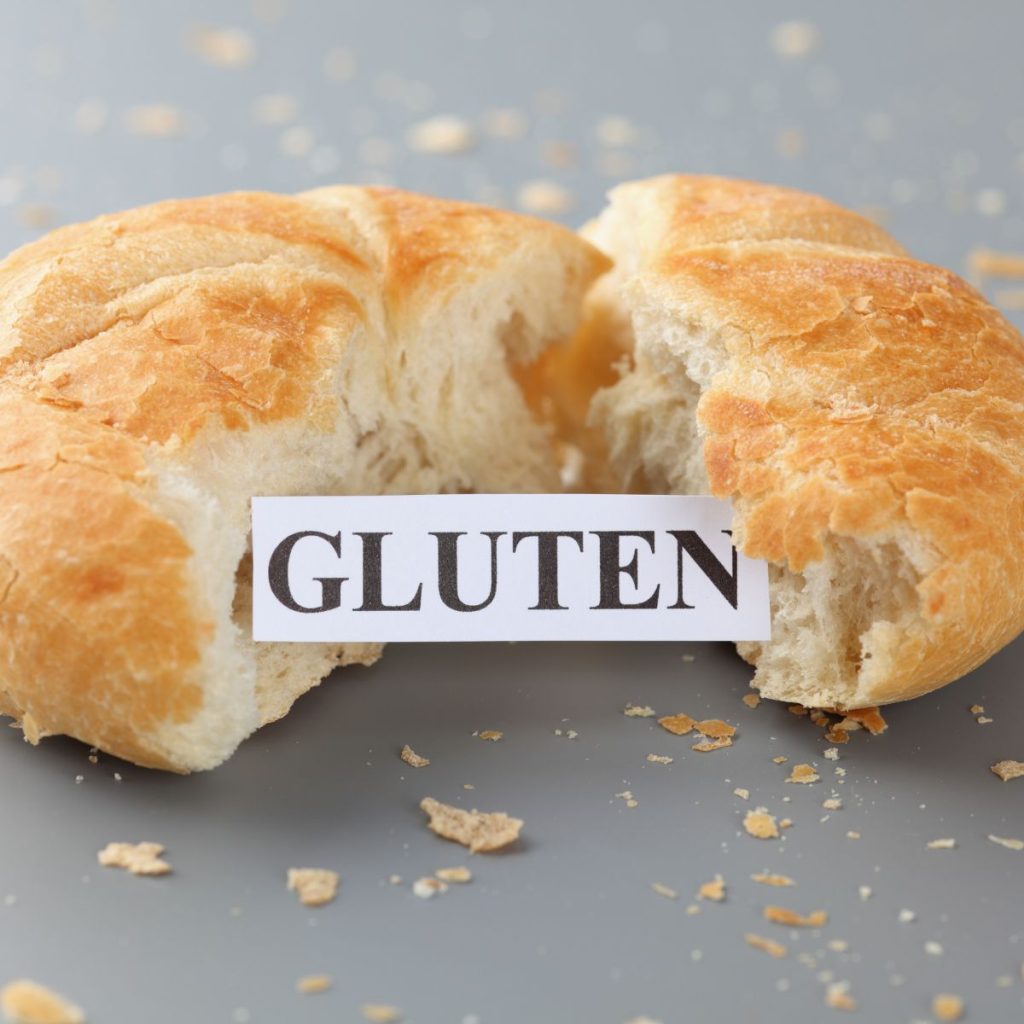
Understanding Gluten and Its Presence in Food Products
If you’re unsure about gluten and its presence in food products, it’s important to educate yourself on the subject.
Gluten is a protein found in grains like wheat, barley, and rye. It acts as a binding agent, giving dough its elasticity and helping it rise.
However, for individuals with gluten intolerance or celiac disease, consuming gluten can lead to various health issues.
This has led to a rise in demand for gluten-free food products.
Food manufacturers have recognized this need and have started developing innovative alternatives to gluten-containing ingredients.
From gluten-free flours made from rice or almond to gluten-free pasta made from corn or quinoa, there are now countless options available in the market.
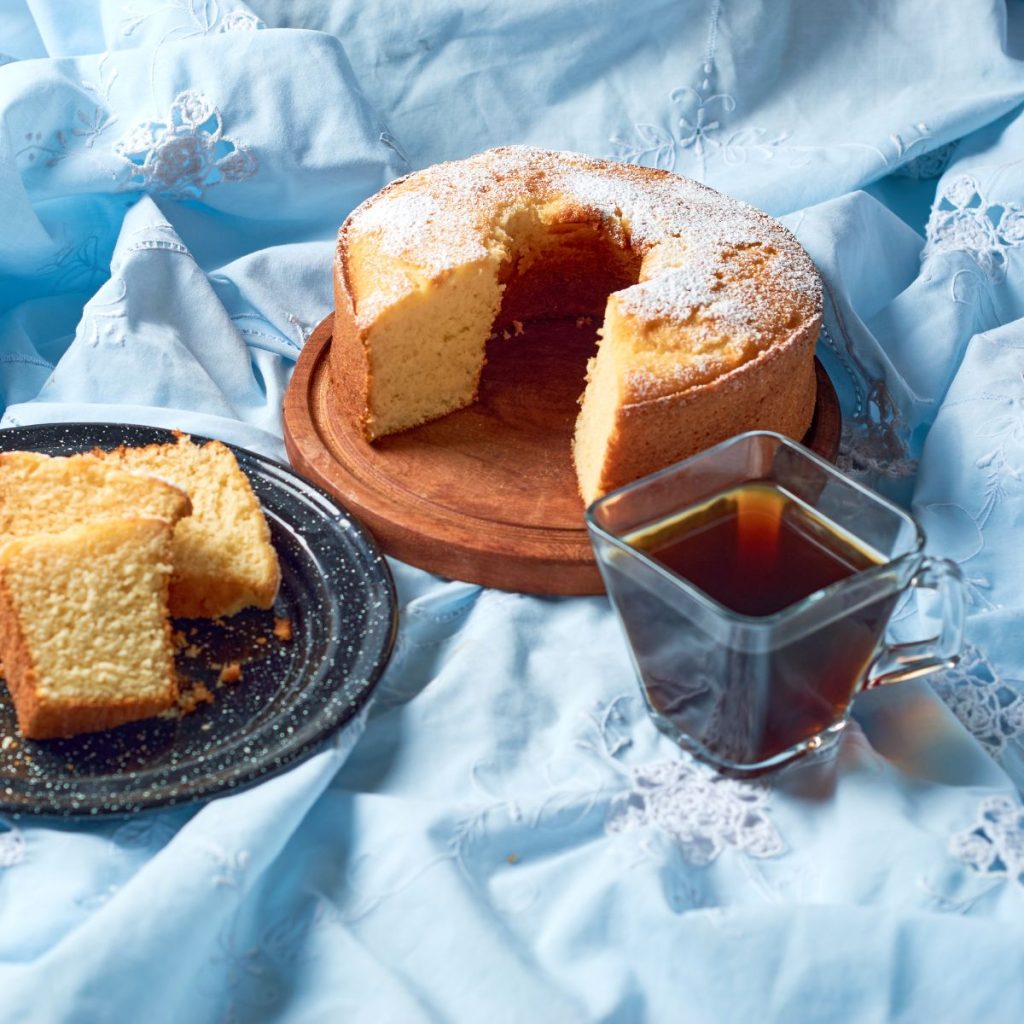
Vanilla Extract: Manufacturing Process and Gluten Contamination Risks
During the manufacturing process of vanilla extract, there are potential risks of gluten contamination that you should be aware of.
While vanilla itself is gluten-free, it’s important to understand that cross-contamination can occur during production.
Many companies use alcohol as a solvent to extract the flavor compounds from vanilla beans.
This alcohol can be derived from grains that contain gluten, such as wheat or barley.
Although most of the gluten proteins are removed during distillation, trace amounts may still remain.
To address this issue, innovative manufacturers are now opting for gluten-free alcohol sources, such as corn or sugarcane.
Additionally, some companies have implemented strict quality control measures to ensure that their vanilla extract remains gluten-free.

Cross-Contamination: Potential Sources of Gluten in Vanilla Extract
When purchasing vanilla extract, be aware of the potential sources of gluten due to cross-contamination.
Cross-contamination can occur when vanilla extract is produced in facilities that also handle gluten-containing ingredients.
This can happen when shared equipment or production lines aren’t properly cleaned before processing vanilla extract.
Additionally, if the vanilla beans used in the extraction process are grown in close proximity to gluten-containing crops, there’s a risk of cross-contamination.
These products undergo rigorous testing to ensure they meet gluten-free standards and are safe for those with gluten sensitivities or celiac disease.
Stay informed and choose vanilla extract that’s free from gluten contamination.

Label Reading: How to Determine if Vanilla Extract Is Gluten-Free
To determine if the vanilla extract is gluten-free, you should carefully read the label for any potential gluten-containing ingredients.
Look for products that are labeled “certified gluten-free” or “tested for gluten.”
Additionally, look for any mention of wheat, barley, rye, or oats on the label, as these ingredients often contain gluten.
Keep an eye out for any hidden sources of gluten, such as malt flavoring or modified food starch.
Remember, manufacturers are required to clearly disclose if a product contains gluten, so look for labels that explicitly state “gluten-free.”
If you’re unsure about a particular ingredient or if the label is unclear, don’t hesitate to reach out to the manufacturer for clarification.

Summary: Tips for Finding Gluten-Free Vanilla Extract
To ensure you’re using gluten-free vanilla extract safely, follow these four tips when searching for the right product.
- First, read the label carefully and look for the words ‘gluten-free’ or a certified gluten-free symbol. This will guarantee that the product has been tested and meets the necessary standards.
- Next, consider purchasing organic or pure vanilla extract, as they’re less likely to contain any additives or fillers that could potentially contain gluten.
- Additionally, opt for extracts that are made from natural ingredients, such as vanilla beans and alcohol.
- Lastly, if you’re unsure about the gluten content of a particular brand, reach out to the manufacturer for clarification.
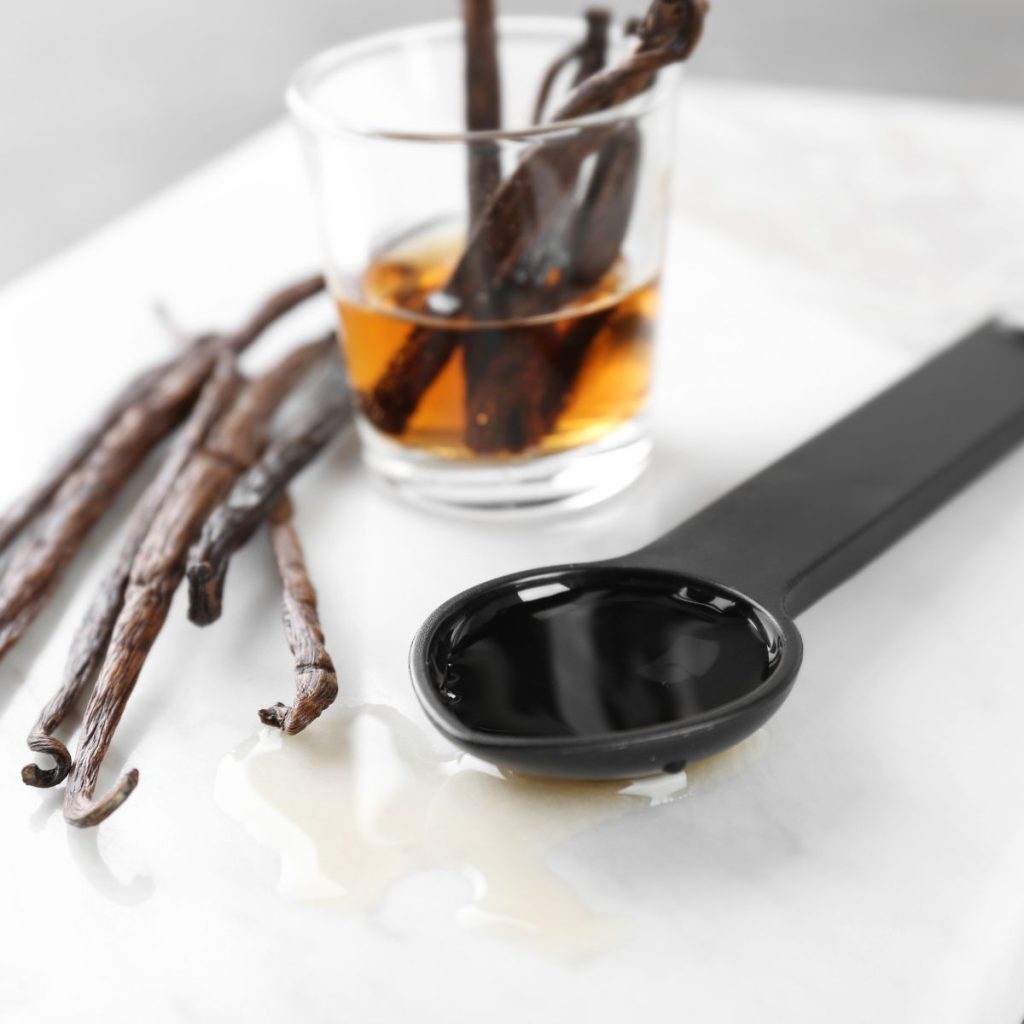
The Bottom Line
So, is your vanilla extract truly gluten-free?
Well, it all boils down to your pick! Vanilla on its own is gluten-free, but there’s a twist.
In the manufacturing process, things can get a little dicey with possible gluten contamination.
However, here’s the scoop: you can still enjoy your vanilla extract without worry.
The secret? Be a savvy shopper!
Check those labels, seek out the certified gluten-free goodies, and don’t be shy about reaching out to the manufacturers if you’ve got questions.
It’s all about making informed choices.
Whether you want it on your cookies, cakes, coffee, or ice creams, you can still savor the sweet, gluten-free goodness of vanilla without any doubts in your mind.





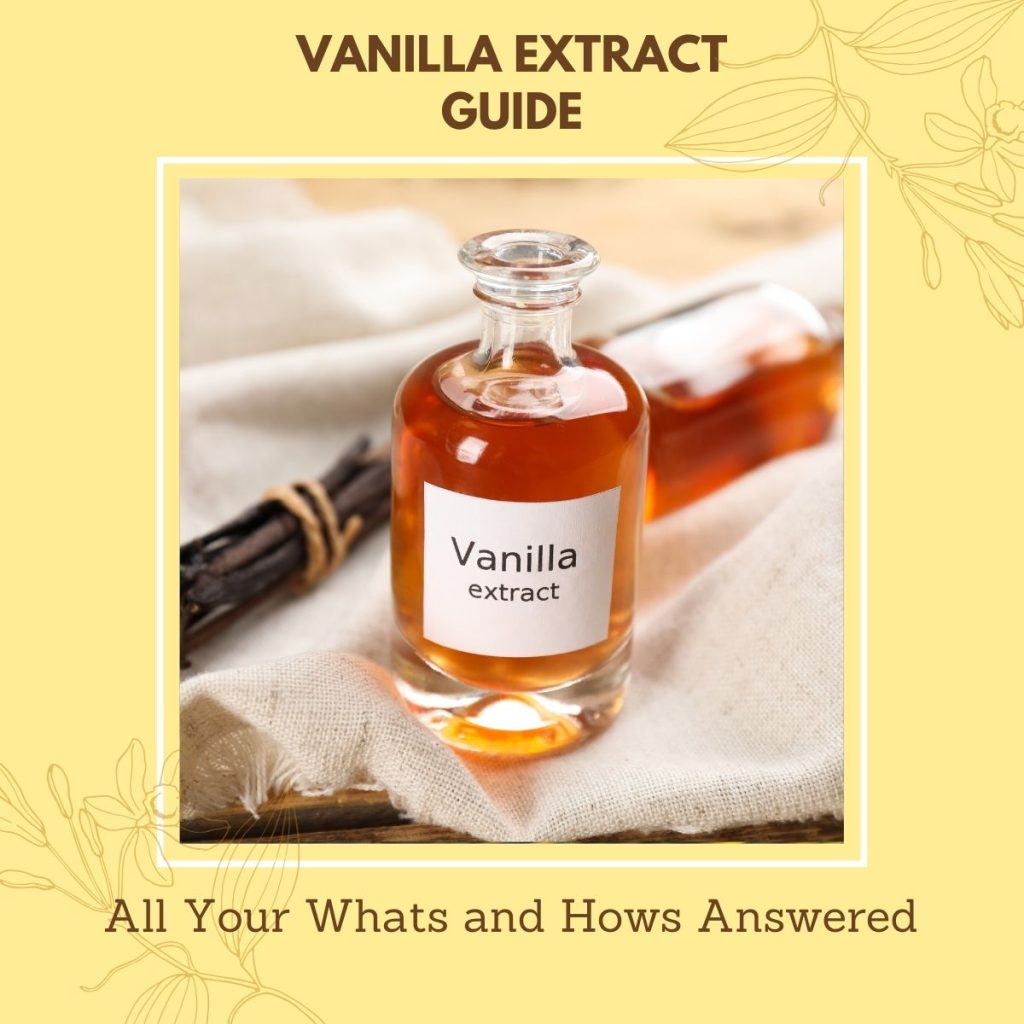
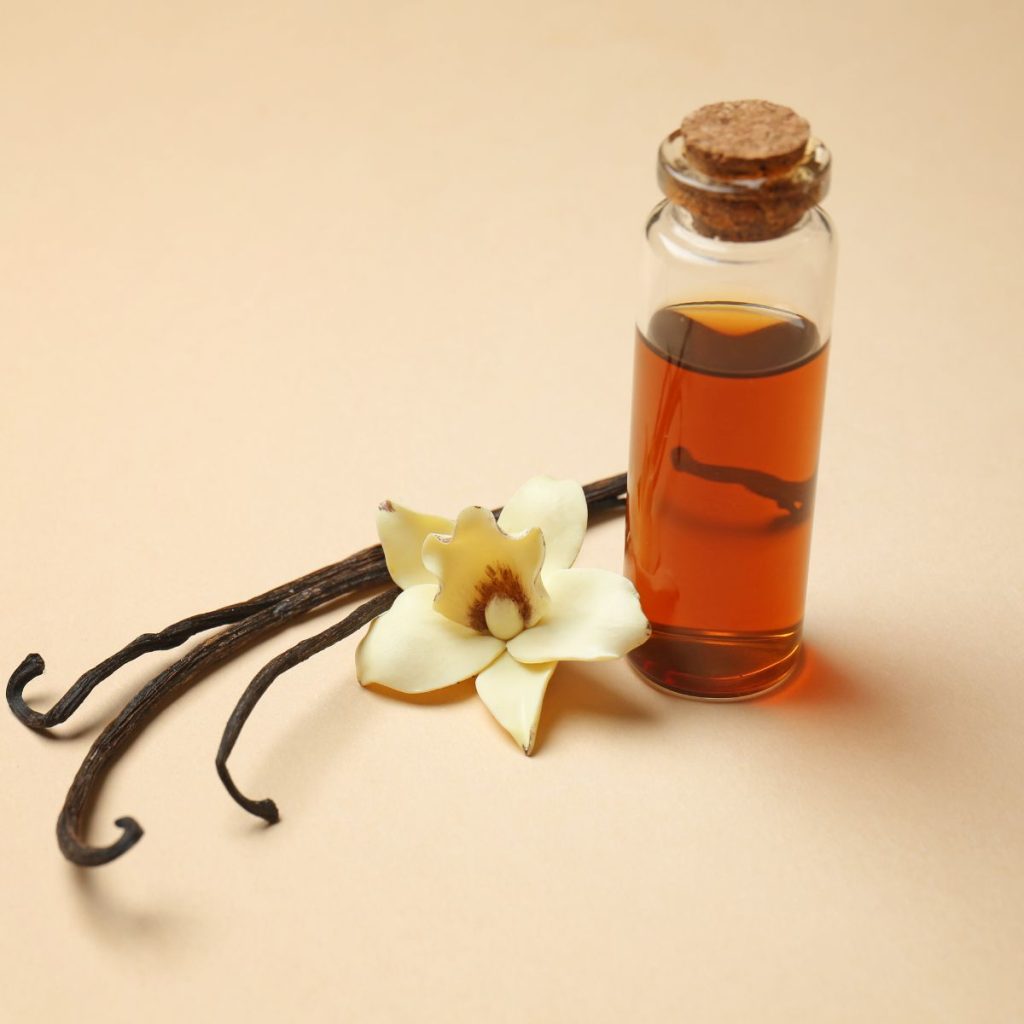

Konnichiwa! (Hello!) I'm Pat Tokuyama, a Japanese tofu cookbook author, who travels for music, food, and adventure. If you like Japanese tea, checkout some of the newestorganic japanese tea, matcha bowls and noren and more!
** Curious about the Plant Based Japanese Cooking Club? ** Learn more here!